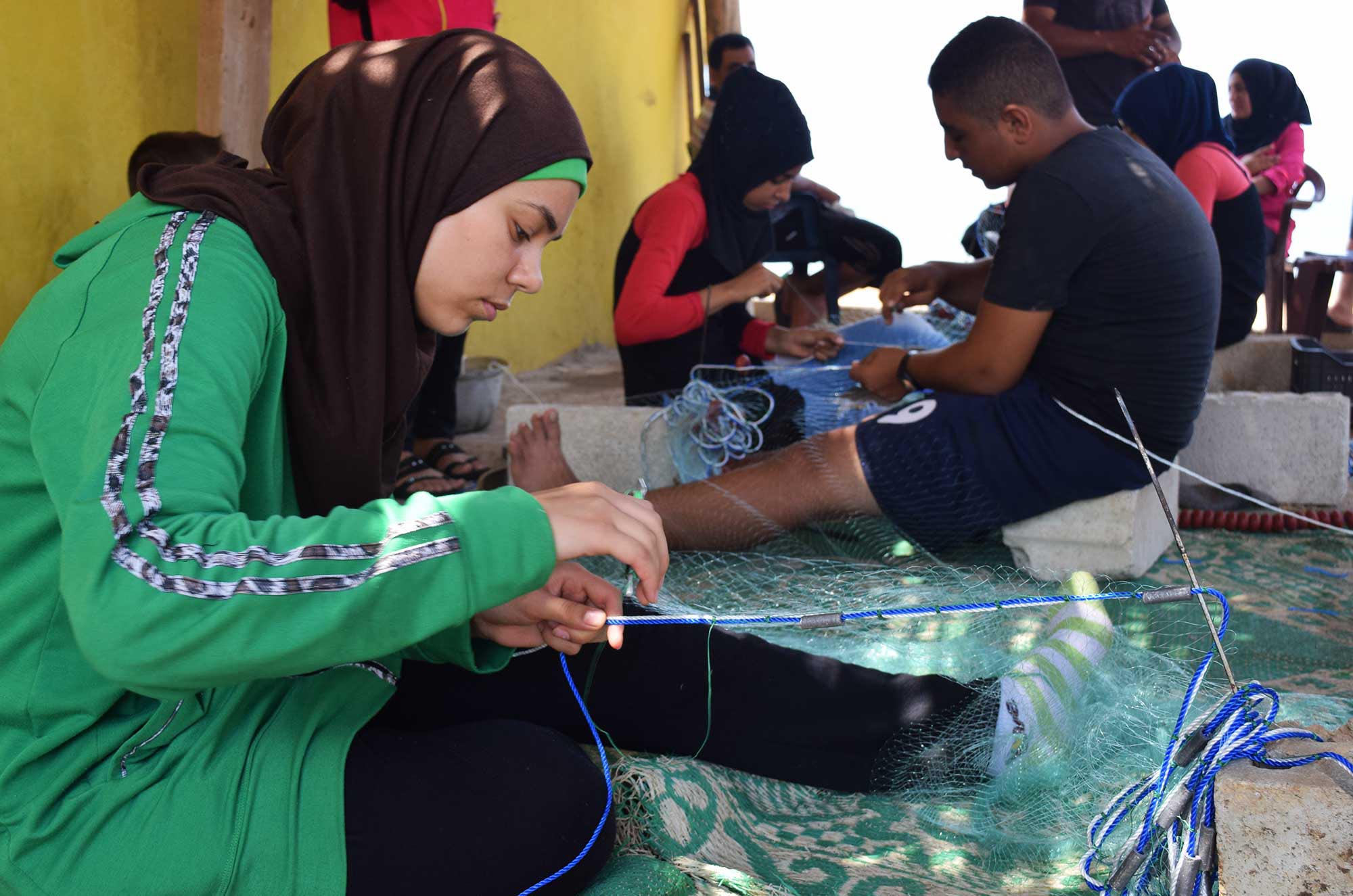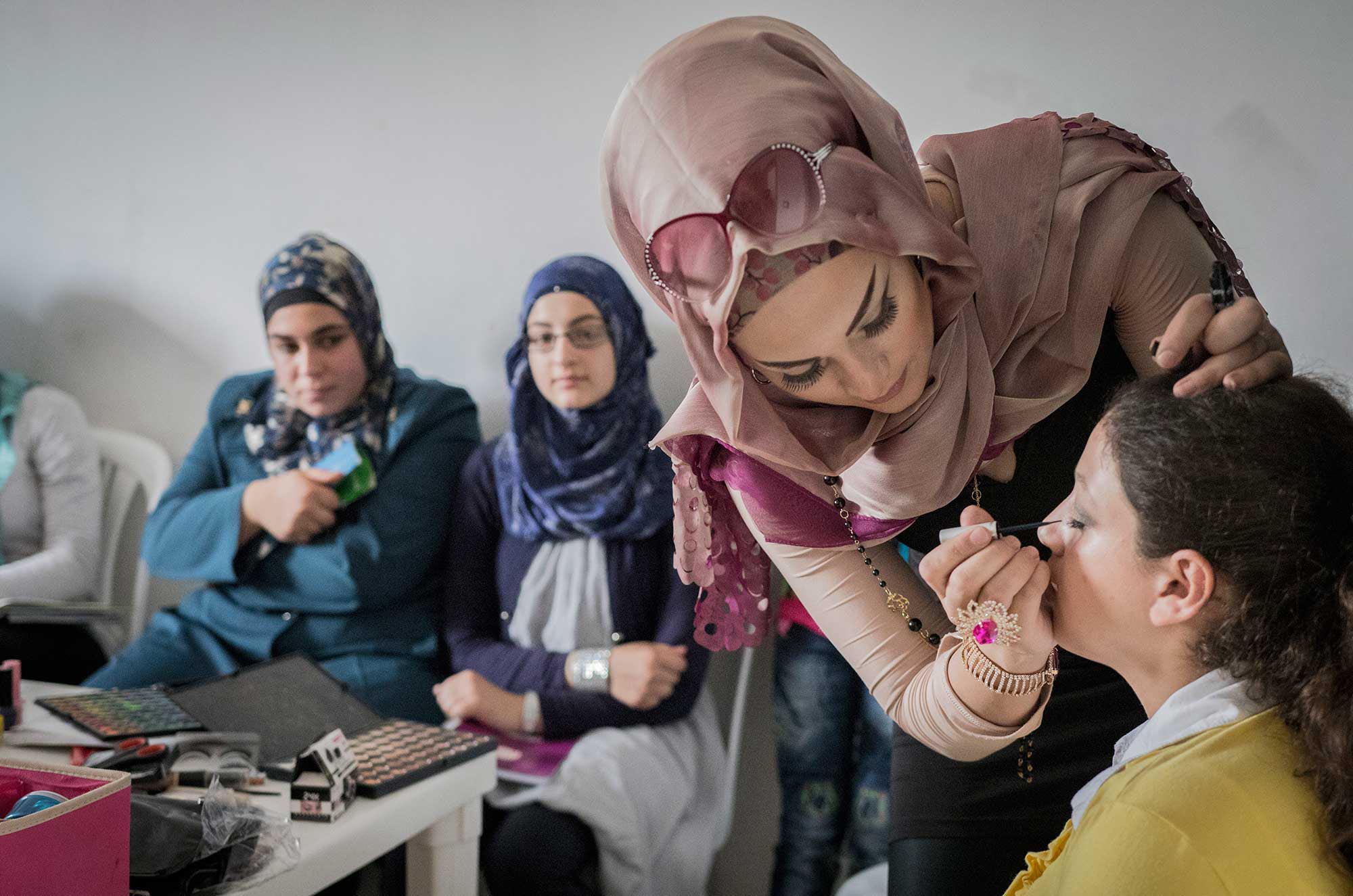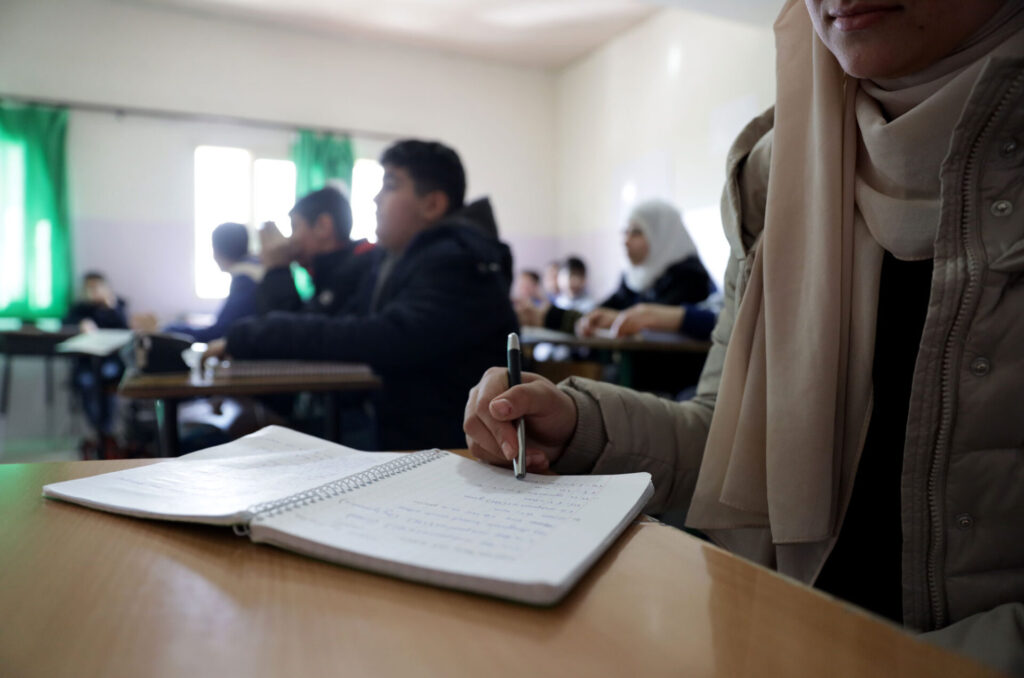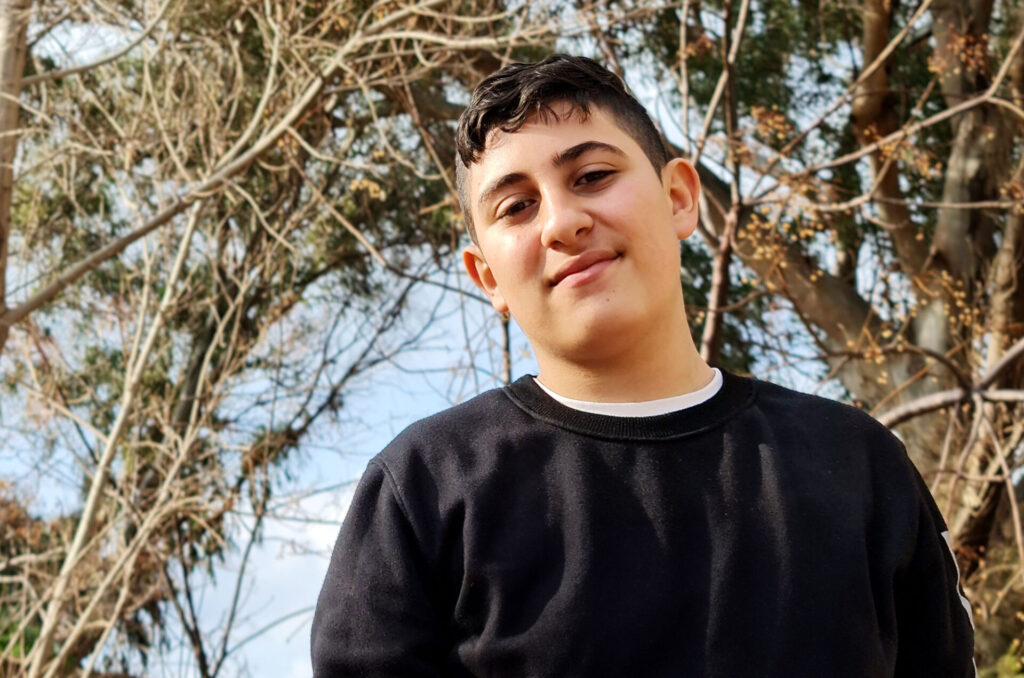Oct, 2016
On the seashore of the Tal Hayat village overlooking the Mediterranean, a group of youth gather under a roofed patio to learn how to weave fishing nets.
These refugee youth, like many of their peers, are not enrolled in schools. They take the fishing net classes to do what they can with their limited opportunities.
In Tal Hayat, the norm for girls and boys is to quit school in their early teens. Boys usually drop out to work and support their families, while girls often quit school to get married.
Bariaa El Ali, 14, stopped going to school in the fourth grade. She now spends her days helping her mother with housework and joining her father on fishing trips. “These classes are a great opportunity to learn how to weave fishing nets,” she said.


Another girl, 18-year-old Marah Ahmad, takes the classes to help her fisherman husband. “Here most of the villagers work as fishermen,” she explained. “I like to sew, as a hobby, so by joining this class I’m enjoying my time and also supporting my husband.” And since fishing nets can be expensive at up to $50, knowing how to make them is an invaluable skill.




“I’ve always loved the sea and helping my dad in his fishing business,” said Bariaa.
This fishing net weaving class is one of many skills-based training courses offered by Anera. These classes provide 5,000 out-of-school youth with entrepreneurship, employability and competency-based training. By August 2016, a total of 3,177 youth have enrolled, including more than 1,600 girls like Bariaa and Marah.
“There are many more restrictions on girls when it comes to access to education and life-skills, especially among underprivileged communities, often in rural areas, which are to some extent more conservative,” said Anera’s Education Program Manager Nisrine Makkouk. “This is why we focus on reaching out to young girls and design classes in a way that aligns with social codes, like having gender segregated groups if necessary, or ensuring their proximity to the center of the village, camp or tented settlement.”
Marketable New Skills Generate Income for Refugees
Rashida El Atik, 14, chose to participate in a class on beadwork in the village of Meshmesh in Akkar, northern Lebanon. “I’m interested in artwork, embroidery, drawing and henna,” she said. By the end of the course, some of her relatives had already placed orders to refashion their headscarves with her beadwork. “They saw pictures of the work I’ve done and loved it,” she added. “Now, I can make my own income practicing a skill I enjoy.”
Likewise is the case of Samar Shaqara, a 16-year-old Syrian refugee who attended a chocolate molding class in nearby Hrar. She now trains at a local chocolate shop in the village and will earn an income based on sales in the coming months.


“The courses are not only about teaching these youth new skills, but also about enabling them to access new opportunities towards improved livelihood,” Makkouk emphasized.
The courses are part of Anera’s education program and are planned in partnership with UNICEF. Funding comes from the German Cooperation, UK Aid and the Bureau of Population, Refugees, and Migration. Anera coordinated with 52 local partners to implement the program in the Lebanese governorates of Akkar, Bekaa, North and South. Youth from the Lebanese, Syrian and Palestinian communities benefit from the program.


